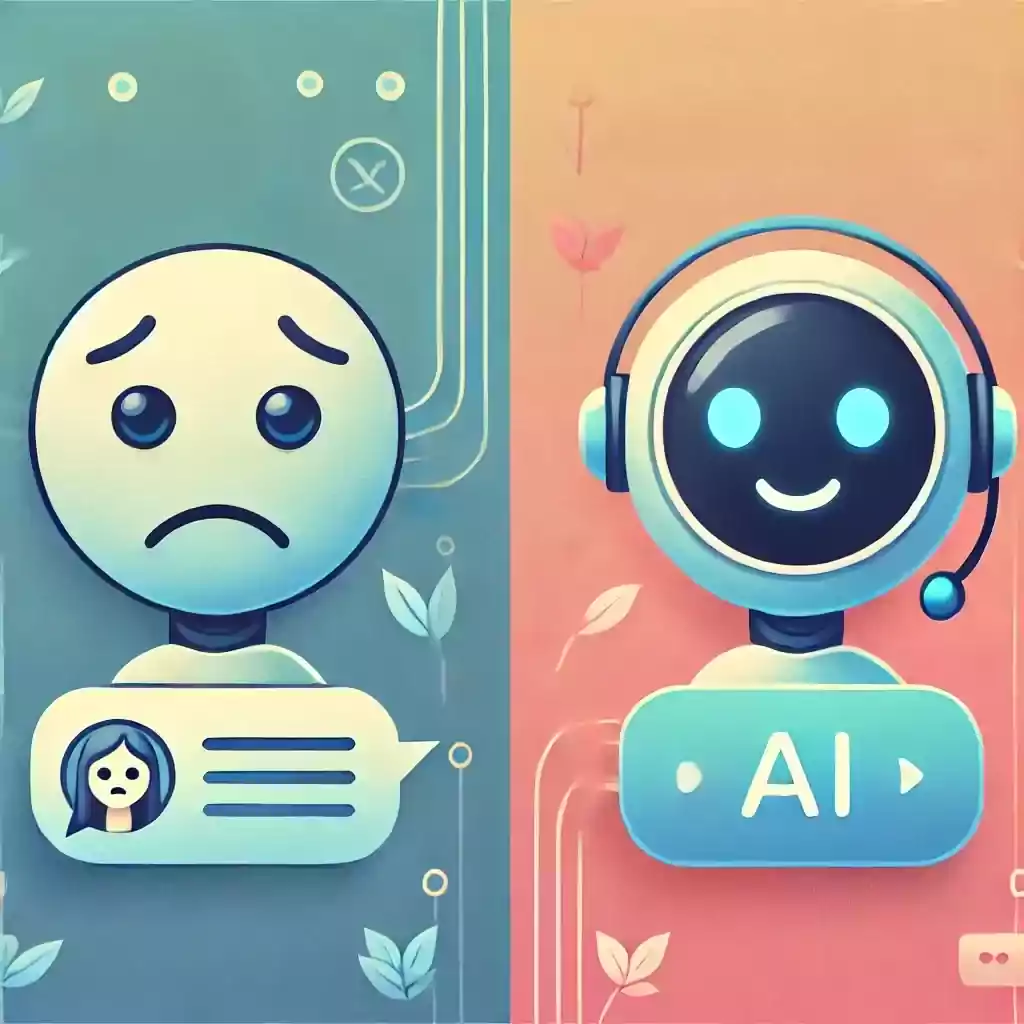The Power of AI Marketing Bots: Smarter, Faster Marketing
Ever wished your marketing could work 24/7, understand your customers, and free up your team to focus on the big picture? Say hello to AI marketing...

A recent Gartner survey claims that 64% of customers prefer companies not to use AI for customer service. This statistic may initially seem damning for AI enthusiasts and businesses considering AI integration. However, it's essential to delve deeper and understand the root of such sentiment, which often stems from a lack of exposure to advanced AI capabilities rather than a fundamental flaw in the technology itself.
Many consumers' apprehensions towards AI in customer service are based on their experiences with outdated or poorly implemented AI systems. Traditional decision-tree chatbots and frustrating phone IVR systems have set a low bar, leading to skepticism about AI's potential. These systems often provide limited, scripted interactions that can be more hindering than helpful.
The advent of Generative AI (GenAI) and Large Language Models (LLMs) has revolutionized the capabilities of AI in customer service. These models can understand and generate human-like text, enabling them to handle more complex queries and provide more natural and engaging interactions. Unlike their predecessors, these AI systems can learn and adapt over time, offering increasingly personalized and efficient service.
A prime example of AI's potential in customer service is Klarna's recent implementation of an AI assistant. Within its first month, Klarna’s AI handled two-thirds of customer service chats, demonstrating both efficiency and effectiveness. Customers interacting with this AI have reported high satisfaction levels, attributing their positive experiences to the AI’s ability to quickly and accurately address their concerns. This case study highlights that when implemented correctly, AI can significantly enhance customer service experiences.
24/7 Availability: Unlike human agents, AI can provide round-the-clock support, ensuring that customers receive timely assistance whenever they need it.
Consistency and Accuracy: AI systems can maintain a consistent tone and accuracy, reducing the likelihood of errors that can occur with human agents, particularly in high-volume scenarios.
Personalization: Advanced AI can analyze customer data to offer personalized responses and recommendations, enhancing the customer experience and fostering loyalty.
Scalability: AI can handle multiple interactions simultaneously, making it an ideal solution for businesses looking to scale their customer service operations without proportional increases in costs.
To shift consumer perception, companies must prioritize transparency and education. Demonstrating AI's capabilities through successful implementations, like Klarna’s, can help reshape public opinion. Furthermore, companies should focus on integrating AI in ways that complement and enhance human agents rather than replace them entirely, ensuring that customers receive the best of both worlds.
While the Gartner survey highlights current consumer skepticism, it does not account for the transformative potential of modern AI technologies. By understanding the limitations of past implementations and focusing on the advancements brought by GenAI and LLMs, businesses can significantly improve their customer service offerings. As more consumers experience the benefits of these advanced systems, the perception of AI in customer service is likely to shift from skepticism to appreciation.
It’s not that consumers inherently distrust AI; they just haven’t been exposed to its true potential yet. With continued innovation and thoughtful implementation, AI can and will revolutionize customer service for the better.

Ever wished your marketing could work 24/7, understand your customers, and free up your team to focus on the big picture? Say hello to AI marketing...

OpenAI's o1 is a groundbreaking family of language models that represents a leap forward in artificial intelligence. o1 is designed with enhanced...